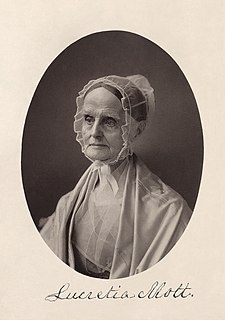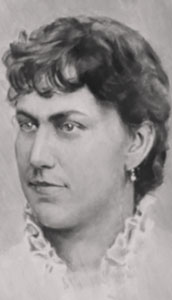A Quote by Ludwig Feuerbach
Theology is Anthropology... [T]he distinction which is made, or rather supposed to be made, between the theological and anthropological predicates resolves itself into an absurdity.
Related Quotes
For years I have told my students that I been trying to train executives rather than clerks. The distinction between the two is parallel to the distinction previously made between understanding and knowledge. It is a mighty low executive who cannot hire several people with command of more knowledge than he has himself.
... the Apostle Peter declared that the Church was built by the Holy Spirit. For you read that he said: 'God, Who knows the hearts of men, bore witness, giving them the Holy Spirit, even as was given to us; and He made no distinction between us and them, purifying their hearts by faith' (Acts 15:8-9). In which is to be considered, that as Christ is the Cornerstone, Who joined together both peoples into one, so, too, the Holy Spirit made no distinction between the hearts of each people, but united them.
Mead's anthropology had many other red, white and blue- blooded virtues. One was the common anthropological conceit, out of which she made a career, to the effect that the ultimate value of studying other cultures was the use we could make of them to reconstruct our own - a heady kind of intellectual imperialism, as if the final meaning of others' lives was their significance for us.
There is however difference between the theology of liberation and traditional theology, the latter being based primarily On the Word of God made incarnate in the Holy Scripture Liberation theology is of course also inspired by the Word, but its representatives are convinced that God also speaks to us in everyday events and that, for example, information obtained through the mass media can be a special way in which God speaks to us.
The denial of any distinction between foreseen and intended consequences, as far as responsibility is concerned, was not made by Sidgwick in developing any one 'method of ethics'; he made this important move on behalf of everybody and just on its own account; and I think it plausible to suggest that this move on the part of Sidgwick explains the difference between old-fashioned Utilitarianism and the consequentialism, as I name it, which marks him and every English academic moral philosopher since him.
Ethics occupies a central place in philosophy because it is concerned with sin, with the origin of good and evil and with moral valuations. And since these problems have a universal significance, the sphere of ethics is wider than is generally supposed. It deals with meaning and value and its province is the world in which the distinction between good and evil is drawn, evaluations are made and meaning is sought.
The only method of restoring the natural equality of dignity between men and women, lies in the demolishment of that elaborate theological structure which maintains that woman is made for the possession of man in a sense in which man is not made for woman, and that celibacy, per se, is a state of superior purity. Nature and common sense (not metaphysical sense) demonstrate that there is no good reason why any man or any woman should take, claim, or wield "lordship" over another.
I hope and believe my co-religionists understand and admit that I disclaim their theology in toto, and that by no twisting of language or darkening of its meanings can I be made to have any thing whatever in common with them about religious matters... they must take my word for it that there is nothing in common between their theology and my philosophy.
If your understanding of the divine made you kinder, more empathetic, and impelled you to express sympathy in concrete acts of loving-kindness, this was good theology. But if your notion of God made you unkind, belligerent, cruel, of self-righteous, or if it led you to kill in God's name, it was bad theology.









































